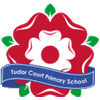Religious Education
‘RE explores big questions about life, to find out what people believe and what difference this makes to how they live so that pupils can make sense of religion, reflecting on their ideas and ways of living.’
At Tudor Court, we adhere to the guidance of the Thurrock Agreed Syllabus, but we also adjust the plans to reflect the high standards we expect from our pupils. Our RE curriculum is structured into three strands, Believing, Expressing and Living and aims to ensure that all pupils know about and understand a range of religions and worldviews, so that they can describe, explain, and analyse beliefs and practices, recognising the diversity which exists within and between communities and amongst individuals. It also aims to ensure that our pupils can express ideas and insights about the nature, significance, and impact of religions to appreciate and appraise varied dimensions of religions. Key concepts and questions of belonging, meaning, purpose, and truth are discussed so that pupils can develop the understanding and skills needed to appreciate and appraise varied responses to these questions and develop responses of their own.
Our RE curriculum is based on a key question approach. The questions encourage pupils to be curious and ask increasingly challenging questions about religion, beliefs, values, and human life. Our pupils learn to express their own ideas in response to the material they engage with, identifying relevant information, selecting examples, and giving reasons to support their opinions and views. RE is taught weekly, and where possible, units are linked to key dates (e.g., Christmas units) and religious festivals (e.g., Diwali). This provides opportunities to celebrate festivals and religions with greater relevance and consistency.





